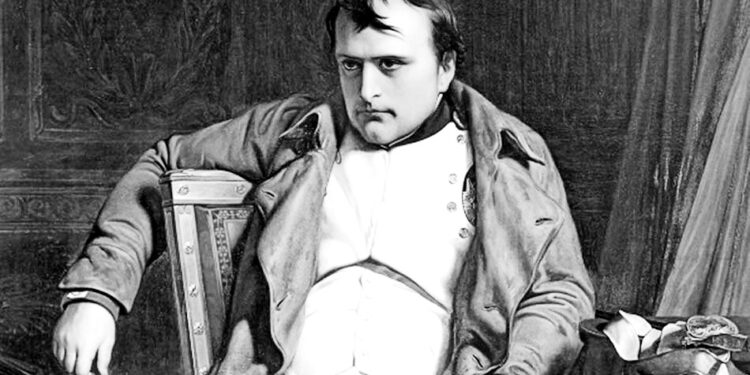Napoleon abdicated on April 11, 1814 and was exiled to the island of Elba on the 4th of May, where he became governor. He was allowed to retain the title of emperor and received Elba as an independent principality as well as an annual appanage, which was, however, never paid out. On the 3rd of May he landed in the capital of his little kingdom, to the government of which he immediately began to devote all his zeal for activity. He created an administration, a small army of 1,600 men and a court, improved customs, laid out streets and built roads, increased salt production, and planted vines and mulberry trees.
In France, dissatisfaction with Louis XVIII increased at the same time. A conspiracy arose between some junior generals, and a change of mood in Napoleon’s favor took place. People began to openly talk about his return. The king’s followers became alarmed and made plans to remove Napoleon from Elba or otherwise dispose of him. Napoleon learned of this, which hastened his decision to return to Paris. When at the same time the division at the Congress in Vienna became serious, he seized the opportunity.
At the end of February 1815, he managed to escape from the island with 1200 soldiers and landed in Golfe-Juan in the south of France from where he made his way towards Paris. The government in Paris sent troops against him but as soon as the soldiers saw Napoleon they went over to his side. Louis XVIII fled the country on March 19, and the following day Napoleon retook power over the country. Europe’s allies formed an army and Napoleon suffered a devastating defeat against it at the Battle of Waterloo on June 18.
Who was Napoleon?
Napoleon Bonaparte was a military and political leader who rose to prominence during the French Revolution and went on to become the Emperor of France. He was born on the island of Corsica in 1769 and trained as an artillery officer before joining the French army.
During the Revolution, Napoleon gained fame and respect as a skilled military commander, winning several crucial battles against the Austrians and Prussians. He eventually rose to the rank of First Consul and consolidated his power through a series of political and military maneuvers, culminating in his proclamation as Emperor in 1804.
As Emperor, Napoleon implemented a series of reforms that modernized France, including the Napoleonic Code, which standardized laws and abolished feudal privileges. He also expanded the French Empire through a series of military campaigns across Europe, which eventually led to his downfall.
Napoleon was defeated in 1815 at the Battle of Waterloo and exiled to the island of Saint Helena, where he lived out the rest of his life until his death in 1821. He remains a controversial figure in history, with some viewing him as a brilliant military strategist and visionary leader, while others criticize his authoritarian tendencies and aggressive expansionism.







Recent Comments